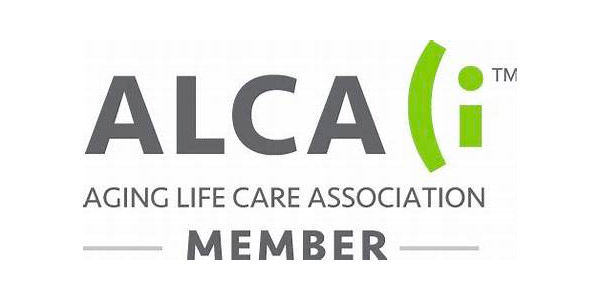When Your Loved One is on Lockdown in an Assisted Living Community.
Weekly Blog, April 1, 2020:
Covid 19: When your loved one is on lockdown in an Assisted Living Community.
 What can you do to help them?
What can you do to help them?
Written by Joan Harris, LSW,MBA, CMC Founder, Symphony Care Management, LLC
Many people move to assisted living communities because they have a diagnosis of some form of dementia. This social model of care in residential living supports individuals with the structure it offers them throughout their day. The consistent routine of programming, meals, outings, cuing and reminders allows them to live at their most independent functional level. We know from research that people with Alzheimer’s Disease and related disorders who stimulate their brain with social engagement, learning and no longer struggle with daily life tasks can slow the progression of cognitive decline to some degree and enjoy a better quality of life.
Covid 19 changed everything: We know assisted living communities are taking extreme measures to keep their residents safe and healthy from this very contagious and deadly virus. The communal dining room is closed and clients are being served meals on trays in their apartments. Activities have stopped except for program staff providing some one to one visits at inconsistent times of the day. Interaction with staff happens when they are providing medication reminders and personal care services. Family, friends, companions, therapists and team members of all types including Care Managers are not allowed into the building to help support the older adult. They are in isolation.
What can you do to help your loved one?
1) Schedule a conference call with the assisted living team: Executive Director, Wellness Director, Activity/Program Director.
-
Find out what they actually are doing to engage their residents and support them. You may be surprised that they are doing more than you think.
-
Request hourly check ins: Individuals with memory loss may not initiate calling staff to assist them with a problem or to press a pendent.
-
Consistently request they assess for signs of depression (i.e.loss of appetite, trouble sleeping, agitation, anxiety, lack of interest in daily tasks they used to enjoy) Depression can present as increased confusion or further cognitive decline in clients with a diagnosis of cognitive impairment. This may require medical intervention.
-
If your family member likes to walk, request they take them out daily or at least a walk in the hallways. They must stay active an this will enhance their mood.
-
Many communities have purchased iPad. Request a schedule for FaceTime with you.
-
If you can send an iPad to your family member, the staff can set it up. There are many ways to use the iPad for activities that can be downloaded and virtual tours or museums and zoos etc.
-
Send your family member a white board with markers that also has a bulletin board. Request that the staff, when they come in the morning to provide care write the schedule for the day on the calendar-re-create structure. The service plan has changed. These steps must be implemented to help your loved one through this time. They cannot be left to their own devices.
-
Make a date for a follow up call in 2 weeks
2) What else can you do?
-
Suggest limited news watching during this time. Provide staff with shows your loved one will enjoy that are lighthearted, funny or historical.
-
Things you can send: Puzzles with 100 pieces, adult coloring books with gel pens (very soothing), books on tape through audible if they have an Alexa (staff can help), family pictures and cards to put up on the bulletin board. What are their interests? Send whatever you can send!
-
Set up a phone schedule with friends and family so that your loved one gets phone calls intermittently throughout the day. With or without FaceTime, the good feeling that they get talking to the people in their life will stay with them.
-
Make sure they are receiving appropriate medical care and oversight. Request an assessment from the nursing team that will report to the client’s primary care physician and to you.
-
Make sure you are practicing self-care. Take time to breathe during the day. Take a walk, do something that is relaxing for you. Reach out to your community, whatever that may be. As an experienced Aging Life Care Professional, I can advocate for the needs of your family member with you as your partner. You don’t have to go through this alone.



